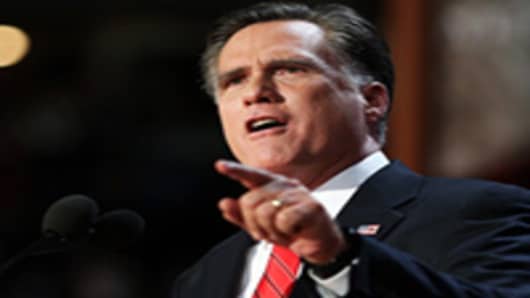Compounding our economic woes is the ubiquitous uncertainty around several public policy issues. From Wall Street to Main Street, employers simply do not know what the next several months, much less the next year, will bring. Yet there seems to be broad agreement that to truly turn this economy around, we must empower small businesses to invest and expand.
As leaders of an industry that empowers small-business owners to achieve the American Dream every day, we believe one sector of the economy that offers immediate economic growth potential is franchising.
Franchising is a business model that encourages entrepreneurship by allowing a new business to be launched using a proven, structured and very scalable formula. Franchisors allow entrepreneurs to invest in their trademark, business systems and the rights to operate the branded business independently. In exchange, the investor or franchisee provides the franchisor an initial and ongoing fee (royalties), for marketing, public relations, training and overall operational support. In other words, owning a franchise allows you go into business for yourself, but not by yourself.
Some of the most recognized brands in the world leverage the franchise model to grow their businesses: Dunkin' Donuts , 7-Eleven, Marriott International , H&R Block, Century 21, The UPS Store and McDonald’s, just to name a few. Yet the impact of franchising in America extends far beyond these major brands.
There are more than 825,000 franchise establishments across 300 business lines, which employ nearly 18 million people and accounts for one in eight U.S. private-sector jobs. Franchises create jobs every single day, in every Congressional District across America.
During a time of stubbornly-high unemployment and ongoing, low consumer confidence, franchising has remained a consistent source of job creation and economic output, despite the still challenging headwinds facing most small businesses. (Read more: Getting a Loan to Open a Franchise Gets Harder)
But things could be better. That’s why more than 400 franchisors and franchisees will gather in Washington, DC Sept. 10 and 11, to meet with policymakers on Capitol Hill to tell them why pro-growth policies, including comprehensive tax reform, are needed to provide the long-term certainty necessary to start and expand their businesses.
Given the current economic climate, now is not the time to raise taxes, but it is the time to start a thoughtful, bi-partisan discussion on the important need to have comprehensive tax reform.
More than 80 percent of franchise businesses file their business income as LLCs, partnerships, s-corporations or sole proprietorships. They do not pay the corporate income tax. Instead, they declare their business profits on their personal-income tax returns, and are taxed at the personal-income tax rate. As such, job creators in the franchise industry could be subject to a substantial tax increase under a plan that only extends the tax cuts for those individuals below a certain income threshold, as has been proposed by some in Congress.
Franchising equals jobs — and job creators.
Our country’s economic health depends on a thriving and vibrant small-business community that creates 65 percent of all net, new jobs in America. We stand ready to work in a bi-partisan manner with lawmakers to ensure we achieve a healthy business sector, which will help all Americans as we strive to get the country growing again. (Are You Better Off?)
A short-term deal that prevents the “fiscal cliff” at the end of the year would serve as a critical bridge and provide some much-needed short-term certainty. Until lawmakers in the next Congress can consider a comprehensive overhaul of the tax system, extending the current tax rates would be a great place to start. (Read more: Fiscal Cliff Will Cause Recession, CBO Warns)
Steve Caldeira is the President and CEO of IFA; Jon Luther is the Chairman of the Board for Dunkin’ Brands, Chairman of the Board of Arby’s and current IFA Chairman; Steve Romaniello is the incoming Chairman of IFA and Managing Director at Roark Capital Group, the owners of multiple franchise brands.
Email us at SmallBiz@cnbc.com and follow us on Twitter@SmallBizCNBC.


